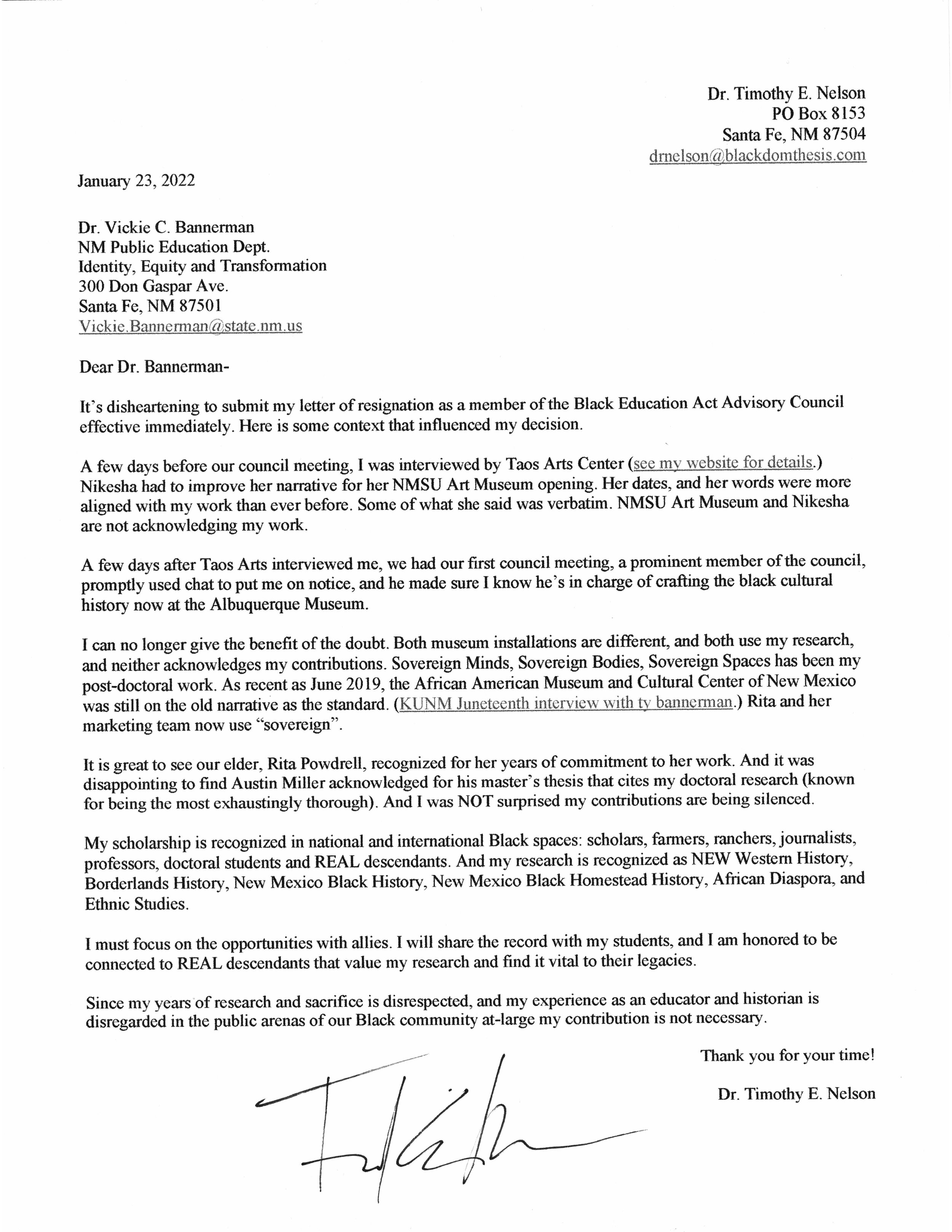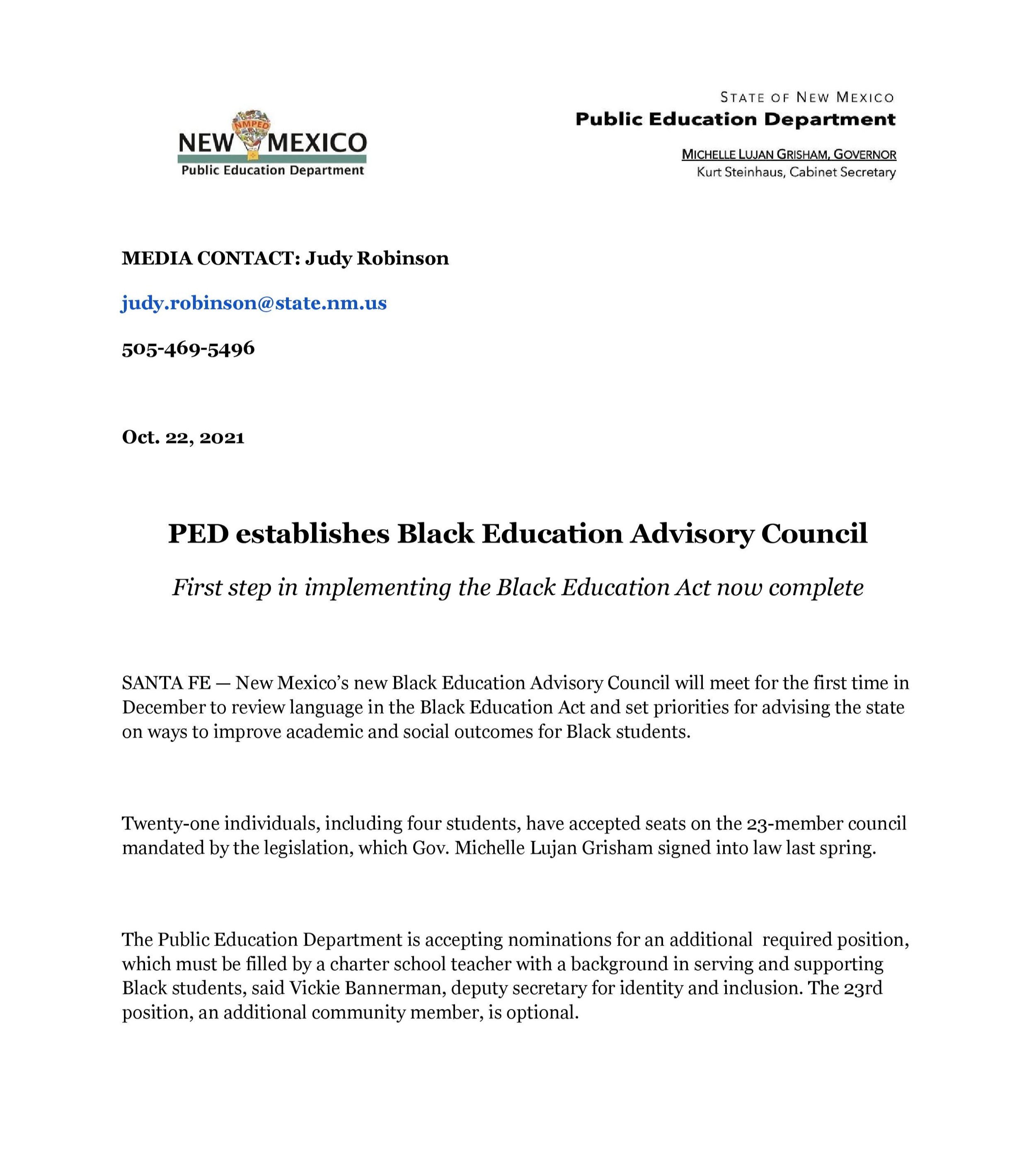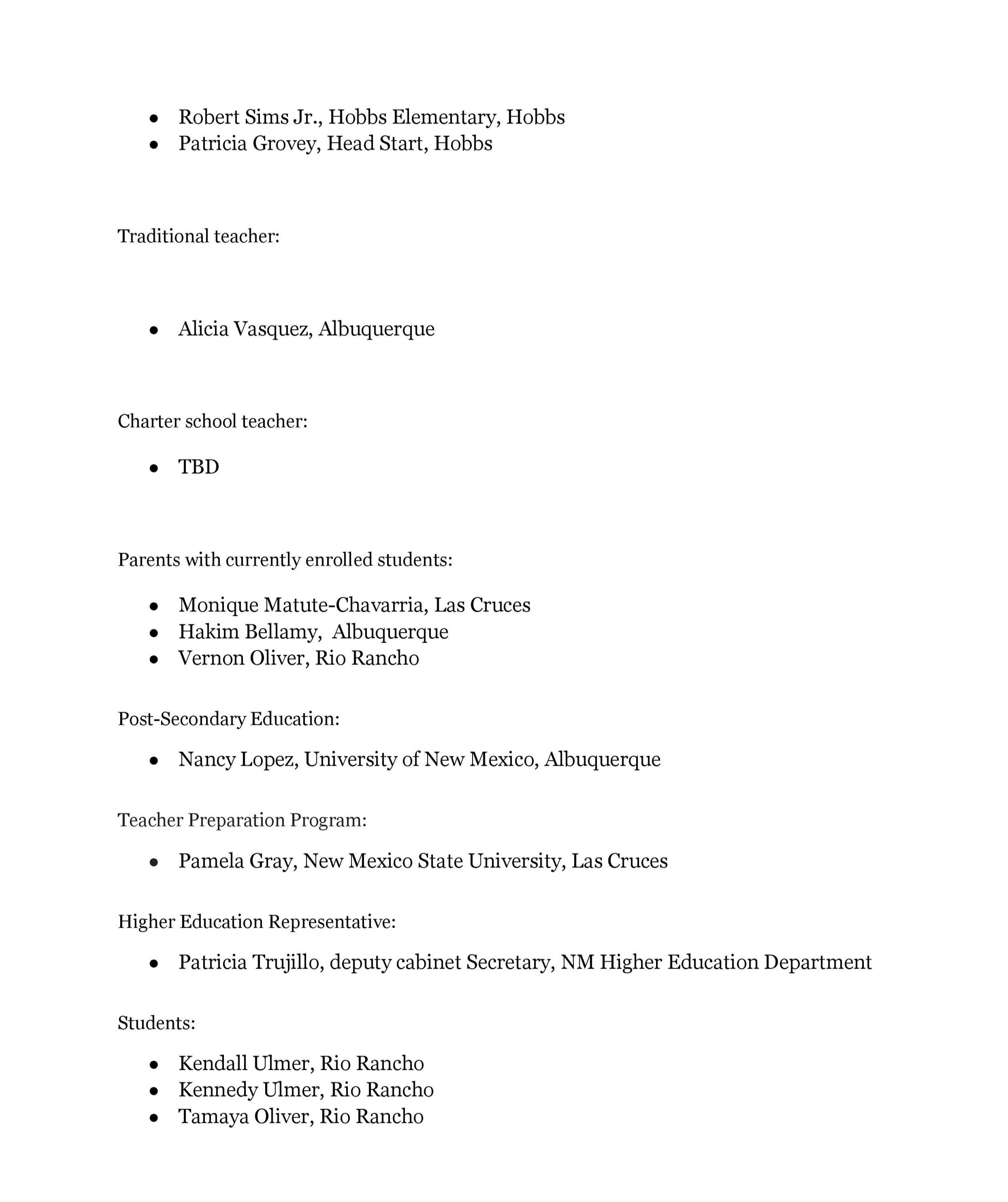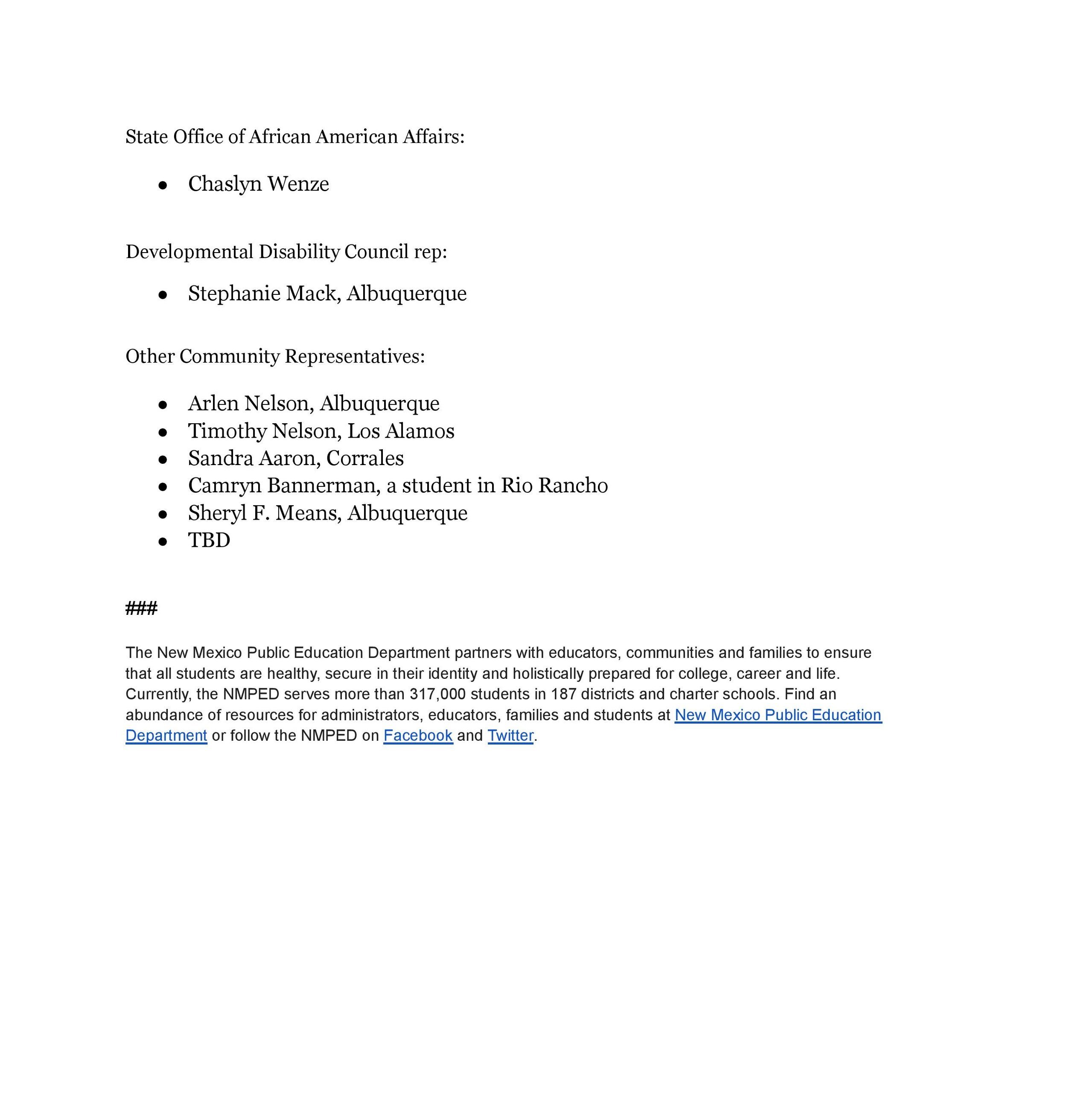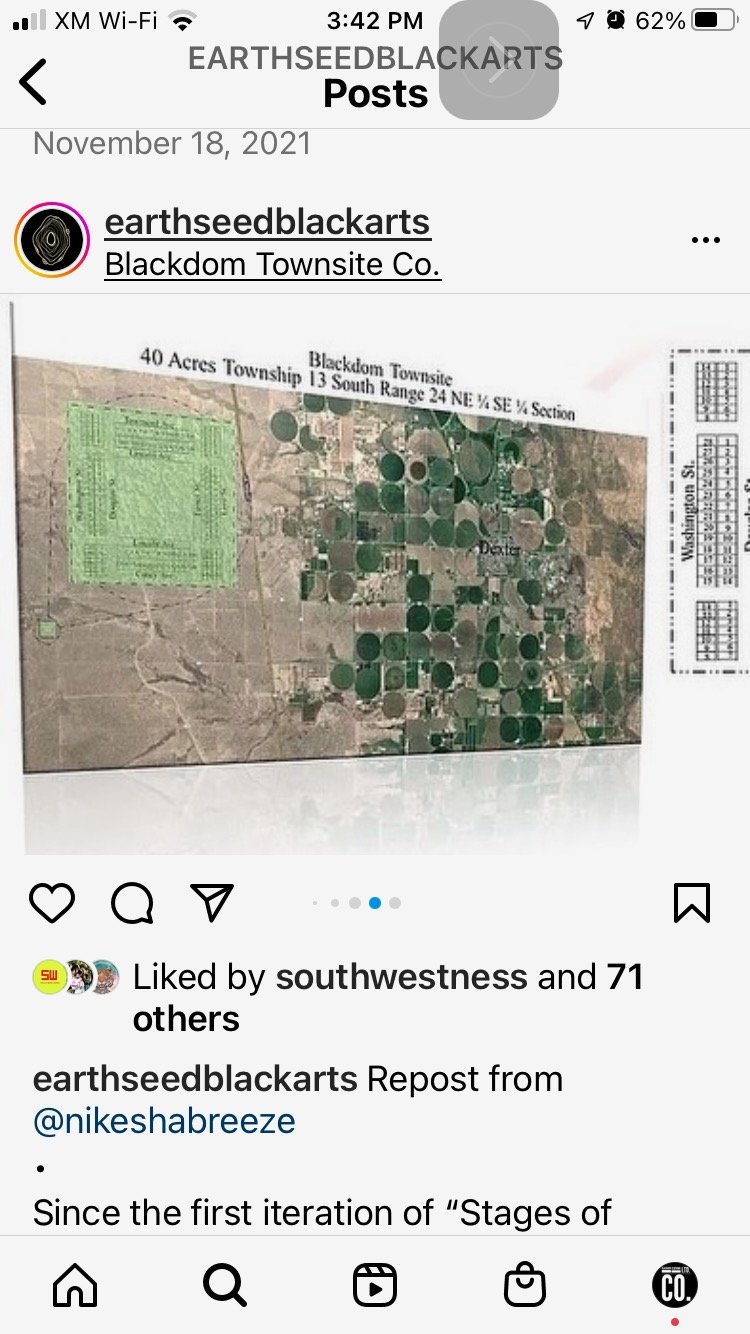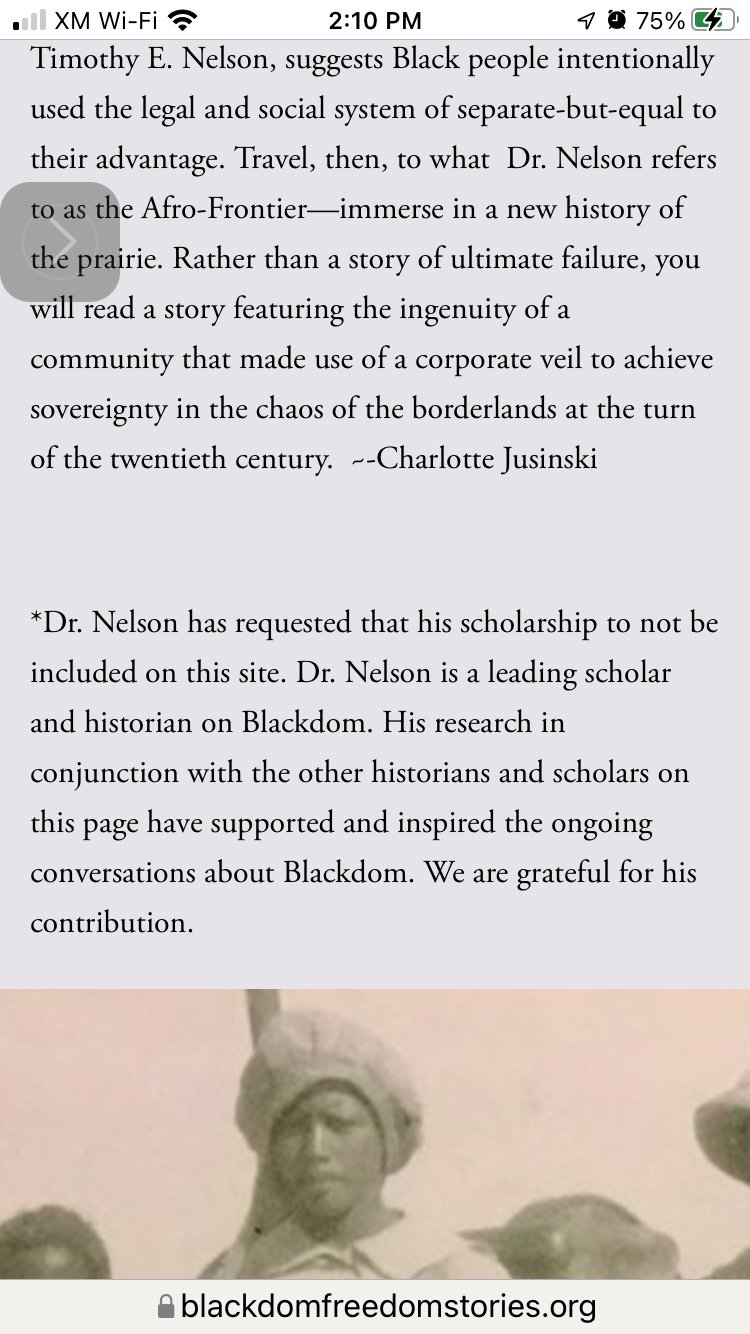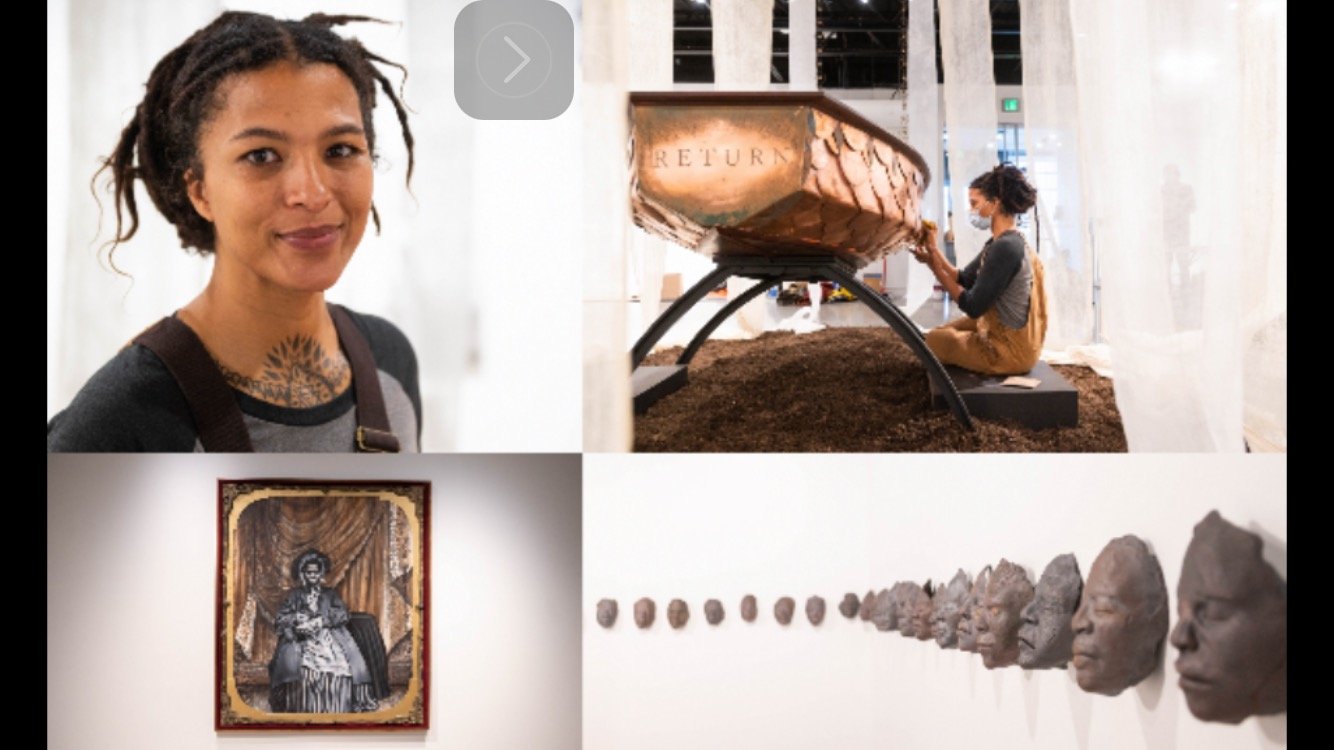Black Education Advisory Council
First BEA Advisory committee meeting on 12/04/2021- is NOT LISTed ON BEA website
New Mexico PUBLIC EDUCATION DEPARTMENT NEWS
Anti-racism training for educators, a culturally inclusive curriculum, and a hotline for reporting school-based incidents of racial bias are among the strategies to be implemented in the coming school year to meet requirements of the New Mexico Black Education Act, which takes effect July 1.
New Mexico PED BEA Publicity
The New Mexico Legislature is considering a bill that would support African American education
New culturally inclusive strategies will be implemented in New Mexico schools
PED Establishes Black Education Advisory Council
HB43-924 Jan 26, 2021 Legislative Session
Our organization notes ongoing concerns with the exclusion, misuse, and infringement of Dr. Nelson's work by the Taos, Santa Fe, Albuquerque and Roswell "Black" communities, highlighting a lack of transparency and open critique. Despite efforts, individuals like Vickie Bannerman, Hakim Bellamy, Rita Powdrell, Nikesha Breeze, and Gregory Waits have shown limited engagement. For instance, in 2019, Dr. Nelson's invitations to collaborate on a panel for the 2020 Western History Conference were declined or ignored, with Gregory Waits withdrawing last minute but managing to feature his presentation through Austin Miller, Ph.D. Candidate, Southern Methodist University, Interpreting Blackdom (UNM master’s thesis).
Nikesha Breeze contacted Dr. Nelson through Facebook Messenger, he relayed a request to coordinate with his business partner, Marissa Roybal, for a scheduled call that did not occur. The NMSU Art Museum misused Dr. Nelson’s work on their exhibit and website, incorrectly citing him and linking his website to Nikesha's without permission. Marisa Sage of NMSU permitted the inadequate and unauthorized use of his work. Further, the Earthseed Black Arts Alliance and NMSU Art Museum shared a map with Dr. Nelson’s watermark on social media without crediting him, missing an opportunity to acknowledge his contributions. At the NMSU opening, Nikesha discussed Blackdom Oil without crediting Dr. Nelson, a pattern repeated during the Blackdom Panel discussion. Despite expressing gratitude for Dr. Nelson’s contributions, Nikesha did not seek his permission or involve him in discussions.
Following complaints, NMSU made some corrections, including removing the unauthorized website link and attempting to correct Dr. Nelson's name. They also opted to delete two Instagram posts instead of crediting Dr. Nelson. However, Nikesha again failed to acknowledge him during an Instagram Live event when she mentioned Blackdom Oil. Additionally, another Taos artist contacted Dr. Nelson highlighting Nikesha wearing what appears to be a Blackdom Illuminated T-shirt gifted by Dr. Nelson’s team.
An interview with Dr. Nelson by the Taos Center for the Arts was never published, suspected to have been shared with Nikesha in preparation for the NMSU event. At the Albuquerque Museum exhibit in 2022, project manager Hakim Bellamy and Rita Powdrell did not include Dr. Nelson in installations related to New Mexico Black Homestead history. The Albuquerque Museum later offered an event tied to the publication of Dr. Nelson’s book, but no further communication was received after reaching out in 2023.
BEA Advisory Council Members that have been in our circles of influence: Timothy Nelson, Los Alamos; Hakim Bellamy, Albuquerque; Nancy Lopez, University of New Mexico, Albuquerque; Patricia Trujillo, deputy cabinet Secretary, NM Higher Education Department; Vernon Oliver, Rio Rancho; Arlen Nelson, Kimberly York, Las Cruces; Nicole Bedford, Albuquerque; Sheryl F. Means, Albuquerque.


